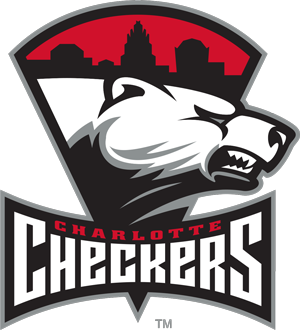Michael Holland remembers the strange looks and comments that he and his Jr. Checkers teammates received when playing tournaments up north.
“Where is Charlotte? What is this? Who are you?” he remembers hearing. “We’d get asked about our accent or get told that we couldn’t play hockey. We’d say, ‘Just wait,’ then we’d beat them 7-2.’
“We had a huge chip on our shoulder. We’d always get chirped, and we knew we had to prove ourselves.”
Over time, that’s exactly what happened. The chirps subsided as hockey led Holland to a successful stint at a prestigious New England prep school and now to Miami University in Ohio, where he is set to become one of the first players born, raised and trained in Charlotte to play Division I college hockey.
Holland continues a Jr. Checker pipeline that has seen others eventually make it at D1 schools, including Thomas Nitsche, who played at Western Michigan University from 2013-17, and Mackenzie Lancaster, who starred on Quinnipiac University’s women’s team from 2015-19. A handful of others have gone on to play in lower divisions. Still more, most notably Bryan Moore, who is still the only local product to play professionally in the ECHL and AHL, chose the major junior route.
Holland and Lancaster, Charlotte’s two most recent D1 college players, recalled key influence from family members as a reason for taking up hockey in an area much more known for other pastimes.
“My older brother is the biggest influence on my hockey career so far,” said Lancaster, whose family moved from New Jersey to Charlotte when she was 1 year old. “I was his street hockey buddy when I got older, got my first pair of hockey skates at 7 and never looked back. I loved it.”
“It’s my fault,” said Mike Holland, Michael’s father and a Checkers season ticket holder. “I found an interest when I lived in Chicago when I was a kid, and Michael went to his first Checkers game when he was 14 days old. By the time he could hold his head up, he was interested.”
 From there, both players entered the Jr. Checkers program. In the absence of a girl’s team at that time, Lancaster had no choice but to play on boys’ teams, where she was a standout player and team captain.
From there, both players entered the Jr. Checkers program. In the absence of a girl’s team at that time, Lancaster had no choice but to play on boys’ teams, where she was a standout player and team captain.
“I was a pretty confident kid, so I would say I had an easier time than a lot of girls have had,” said Lancaster. “I always felt welcome, and I was just having fun with it.”
At those northern tournaments that drew the curiosity of rivals not accustomed to seeing teams from as far south as Charlotte, both players caught the attention of people that would introduce the possibility of travel hockey turning into something more – something they hadn’t necessarily considered despite all the birthday parties and other social gatherings they had already sacrificed.
“I would just go to play. Great, let’s win some games,” said Holland. “Then I started getting emails and introductions after the game and I said, ‘Alright. I have to start thinking about this.’”
The Hollands were away for nine consecutive weekends during Michael’s freshman year of high school in Charlotte – a season that included five trips to Boston. Lancaster, in search of dedicated girls programs around that same age, ended up playing for teams based in Florida, Maryland and Pittsburgh – none of which, it turns out, are particularly close to Charlotte.
Having the opportunity to go to high school in the same place they played hockey proved too much to pass up.
“I walked to the rink,” said Holland of his time at Deerfield Academy in Massachusetts. “The closest rink I lived to in Charlotte was 30 minutes away on a good day, so this was like being a kid in a candy store. We played travel in the fall and then had a school season. I had never had friends come to a game in my life before.”
“It was really nice to have hockey, my school and my social life in one area,” said Lancaster, who went to Marvin Ridge High School in Waxhaw but spent most of her in-season weekends in Pittsburgh before moving on to Berksire School in Sheffield, Mass. “I loved the experience I had there.”
Still, it’s a young age to leave home.
“Sending your kid away is not for the faint of heart,” said Mike Holland, Michael’s father. “It’s got to be right for the kid and it’s got to be right for the family.”
“My mom had a really hard time with it, my dad as well,” said Lancaster. “But they knew I loved it and it was what I wanted to do. I was going to have to leave for college anyway, it just happened two years earlier. It was a hard decision, but definitely the right one.”
 In Holland’s case, he went from not knowing what kind of playing time to expect in his first year to finishing third on the team in scoring. He would graduate as the sixth-highest scorer in team history, with former NHL forward Marty Reasoner, Pittsburgh Penguins forward Sam Lafferty and Tampa Bay Lightning winger Alex Killorn among those ahead of him.
In Holland’s case, he went from not knowing what kind of playing time to expect in his first year to finishing third on the team in scoring. He would graduate as the sixth-highest scorer in team history, with former NHL forward Marty Reasoner, Pittsburgh Penguins forward Sam Lafferty and Tampa Bay Lightning winger Alex Killorn among those ahead of him.
For both Holland and Lancaster, the prep school decisions paid off with increased college opportunities. Lancaster, who had an offer from Penn State’s startup program even before leaving North Carolina, ended up getting exposure to more schools before committing to Quinnipiac.
Holland had talked to a few college coaches, including former Checkers coach Mark Morris at St. Lawrence University, about opportunities before another Checkers connection led him to Miami. Matt Chandler, who became a friend of the Holland family while playing for the ECHL Checkers in 2004-05, helped by making some calls to his old college coaches.
“I haven’t referred a lot of players there because I’m very protective of who gets into that brotherhood, but Michael is such a good fit,” said Chandler, who now works in software sales. “From a young age, the kid had the attitude, the work ethic and the belief system. He had all these principles. (At Miami) they want student athletes and guys who deliver off the ice, in the community and in the classroom. They’re looking for guys like Michael Holland.”
From there, the process completed in an usual way due to the onset of the COVID-19 pandemic.
“The coaches were going to come and watch and were never able to because our season got canceled,” said Holland. “I ended up sending them some film, they liked what they saw and they took a chance on me.”
Holland, who plans to enter the business school at Miami, hopes that his style of play will help him in an expected fight for ice time whenever his college career can begin.
“Scoring is obviously fun, and if you play with good kids and the talent is at a level where you can score, that’s great,” said Holland, who finished with 84 points in 93 games at Deerfield. “For me, I’ve always loved to play the body, get in people’s faces and play hard on the forecheck. That’s what I was good at. As you climb levels and the competition gets better, I feel like my physical presence could be useful.”
At Quinnipiac, Lancaster went through an adjustment period in her freshman year before going on to lead the team in scoring and serve as an alternate captain as a senior. While her collegiate career ended and her dream of making the U.S. Olympic team came just short, she mulled opportunities to play professionally in both North America and Europe before ultimately deciding to move on to an assistant coaching job with Division III Connecticut College.
"I would have loved to keep playing, but it’s one of those realities," said Lancaster. "I thought that the best way for me to find out what I wanted to do and still give back to young women was to start a coaching career."
Since leaving Charlotte, Holland and Lancaster have had the opportunity to observe the growth of the youth hockey scene in the area. In addition to increased participation at the Pineville Ice House and Extreme Ice Center – rinks they grew up with – additional programming has begun on the Checkers’ home ice at Bojangles’ Coliseum.
“There’s a lot more girls playing now,” said Lancaster, who has a degree in psychology. “Now they have programs, and some of the girls are going on to play Division 3 in college now. That wasn’t happening at those numbers when I played. It’s really cool.”
“When I come home for a little bit, I can see that there are a lot of kids that are looking a lot better,” said Holland. “The talent pool is a lot deeper. Hockey is growing in the south.”






